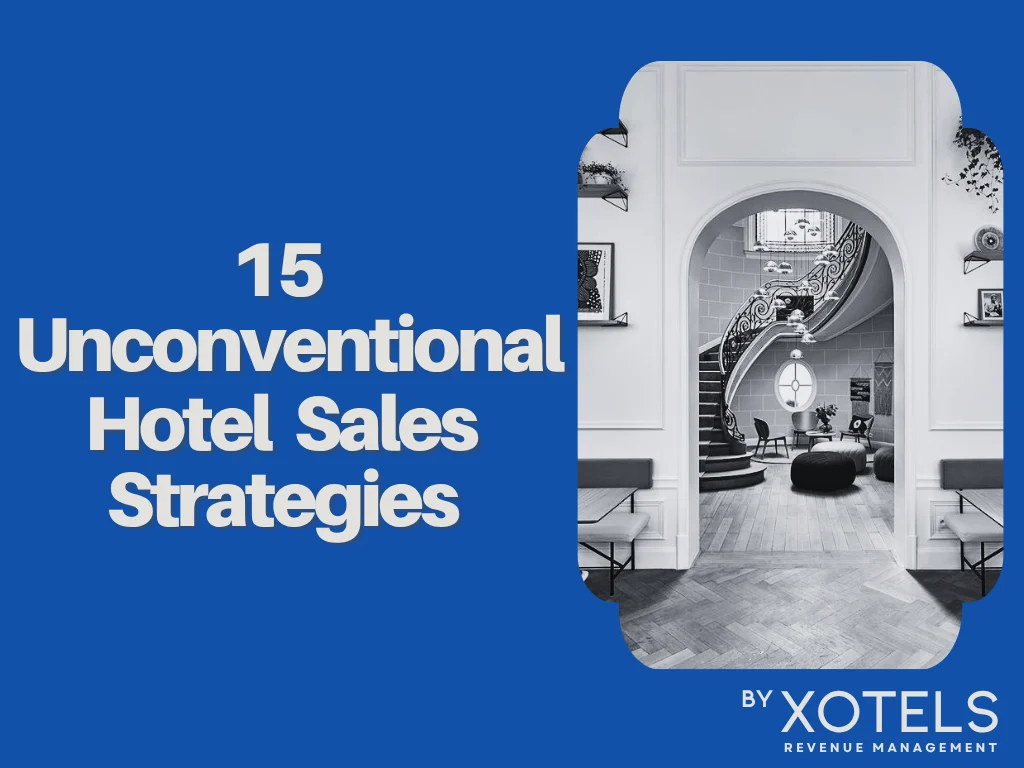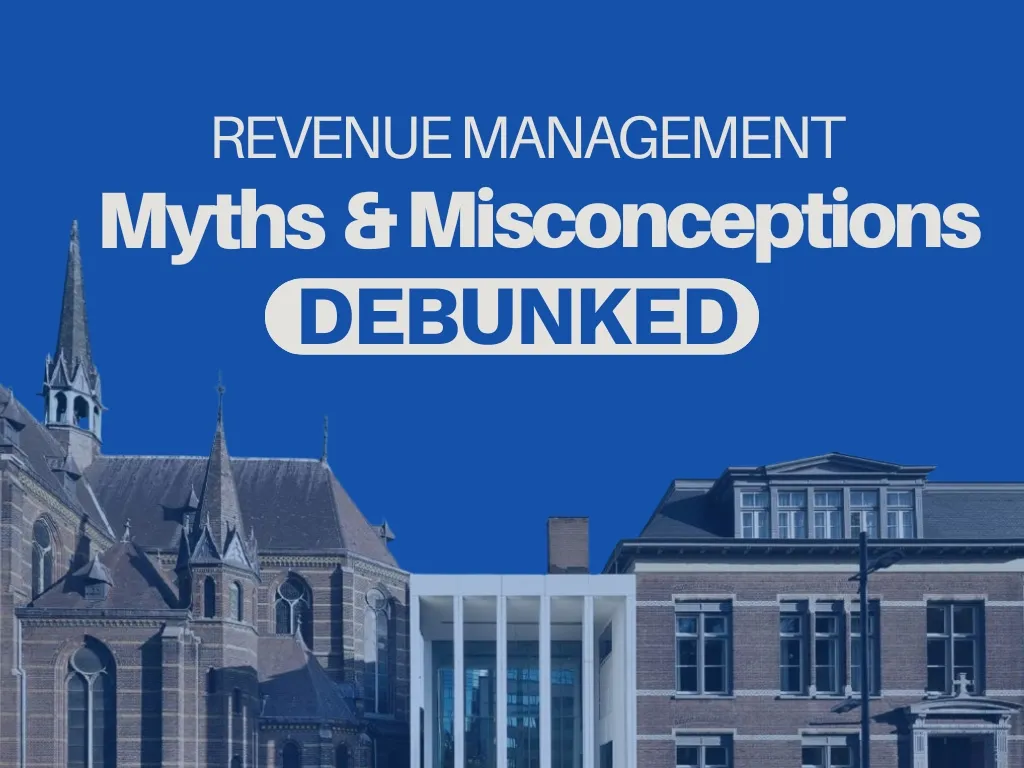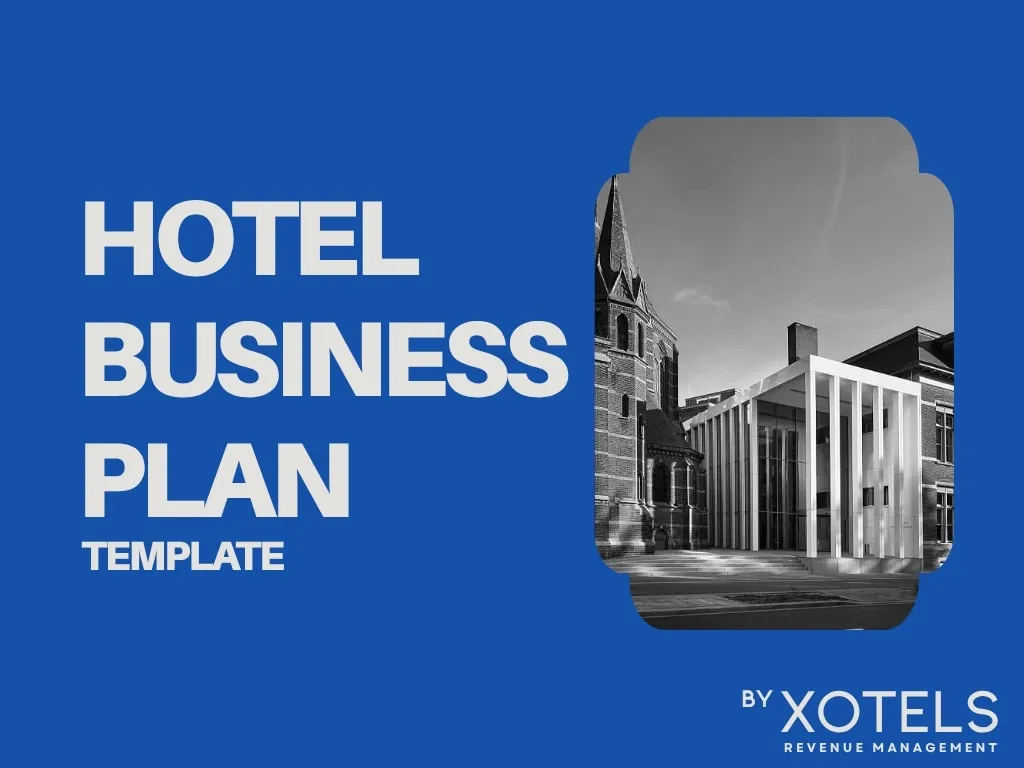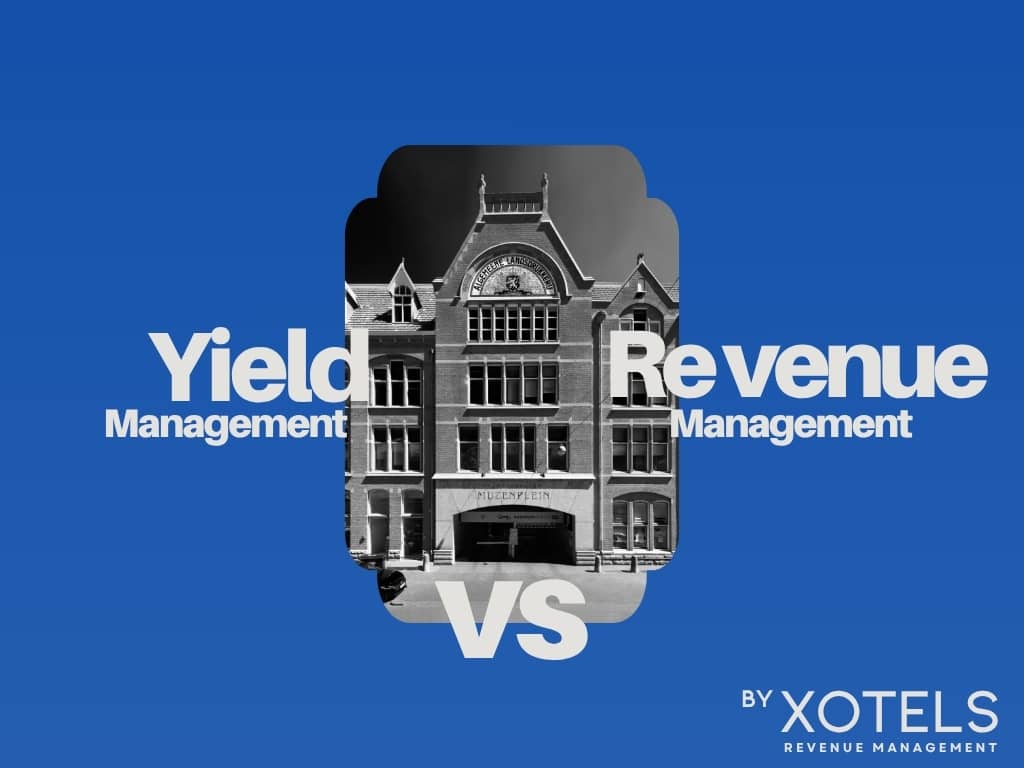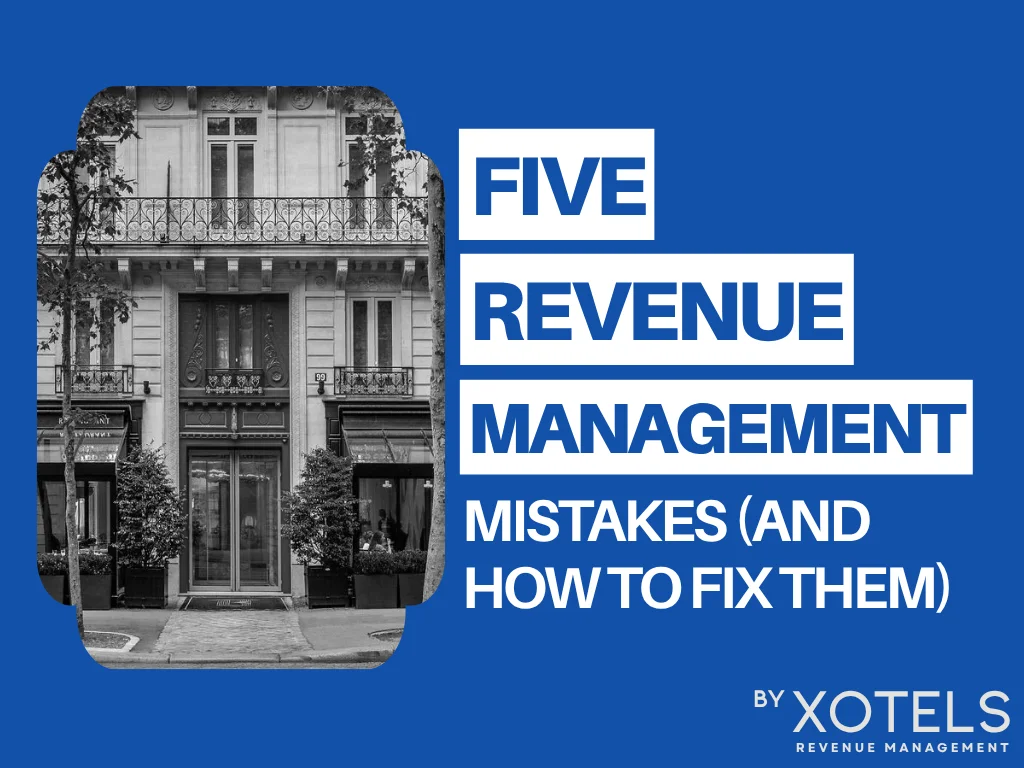What Does a Hotel Management Company Do?
Whether you’re a senior hotelier or an entrepreneur in the hospitality sector, understanding what a hotel management company does is essential to thriving in today’s competitive hospitality landscape. Running a successful hotel demands not only a passion for exceptional guest experiences but also a deep understanding of numerous intricacies to ensure revenue management, finance, marketing, and operations all keep running perfectly.
Let’s uncover the invaluable support that is offered and explore why this collaboration has emerged as a strategic necessity.
Article Summary:
- What Do Hotel Management Companies Do to Help Hoteliers?
- Advantages of Engaging with Hotel Management Companies
- The Third-Party Hotel Management vs. Chain/Franchise Management Model
- Considerations When Choosing the Right Company
- Why Should You Hire a Hotel Management Company?
- Making the Right Choice in Hotel Management Companies
What Do Hotel Management Companies Do to Help Hoteliers?
Hotel management companies are business entities that specialize in operating and overseeing various aspects of hotel properties on behalf of owners or investors.
At its core, a management company can be seen as a strategic partner that empowers hotel owners to navigate the complexities of the hospitality industry with expert advice.
The goal is to maximize the profitability and efficiency of hotels while maintaining a high level of guest satisfaction and service quality. Both single hotels or a portfolio of hotels of different brands and segments, can highly benefit from the expert services and advice provided a tailored approach is offered.
Advantages of Engaging with Hotel Management Companies
A symbiotic relationship between a hotel owner and a management company can reap a host of benefits, elevating the hotel’s performance and profitability to new heights:
Cost-Effective and Efficient Operations: the collaboration of both companies can lead to significant cost savings. By leveraging background experience and resources, expenses can be reduced without compromising on service quality. Learn more about effective cost savings by reading the article 10 Smart Hotel Cost Control Ideas to Save Money.
Access to Industry Insights and Expertise: the right partner will provide a team that comprises of seasoned professionals skilled in various disciplines, from operations and revenue management to marketing and customer service. This breadth of knowledge infuses fresh perspectives.
Operational Excellence to Enhance Guest Experiences: the internal processes of a management company are perfected and refined over years of practical experience in various hotel types. Leveraging the available expertise, hotel owners can enhance the perfect hotel guest experience fostering guest loyalty. Meanwhile, the management company ensures that every guest interaction is memorable, resulting in positive reviews and repeat bookings.
Strategic Revenue Management: maximizing revenue requires an intricate understanding of market dynamics, pricing strategies, and demand patterns. Parenting with a third-party hotel management employs data-driven techniques to optimize room rates, boost occupancy, all in effort to increase hotel income and profit.
Marketing Strategies: impactful marketing is pivotal to capturing the attention of prospective guests. Management companies develop tailor-made effective marketing strategies that leverage digital platforms, social media, and other channels to increase visibility and bookings.
Resource Optimization: from managing staff to handling inventory, management companies excel in optimizing resources. This ensures that every aspect of the hotel’s operations operates efficiently, contributing to improved cost control.
Flexibility and Adaptability: the hospitality industry is subject to rapid shifts in trends and guest preferences. Agility and quick adaptability, one of the most important characteristics of third parties, enable hotels to retain their relevance and competitive advantage in a constantly changing landscape.
Expert Financial Management: understanding how to read your hotel profit & loss statement or PnL is the foundation of sound financial management, ensuring your hotel’s financial sustainability. Management companies have a solid understanding of the opportunities and risks the hotel may face and offer expert financial guidance, from budgeting and expense control to financial reporting and analysis. Healthy financial performance in turn can fuel investment and attract external investors to further improve the hotel´s results.
Reviewing The Third-Party Hotel Management vs. Chain/Franchise Management Model
In an industry filled with many different management structures, the question arises: how can a hotel make an informed decision and find the right operator model to match with their property?
The answer lies in what each type of management structure offers:
Franchise:
While franchisees benefit from the advantages of belonging to large hotel chains, this model limits hoteliers in facing the changing and highly competitive facets of the hospitality industry.
- Limited Autonomy: hotels are required to adhere to tightly regulated standards dictated by standardized norms, constraining their operational uniqueness and authenticity.
- Cook-Cutter Approach: franchises opt for this approach due to the need to maintain consistency and standardization of their operations facilitating replication of the business model inhibiting diversification and orientation to personalized guest experiences.
- High Fees: starting a hotel franchise demands substantial investment in property, construction, furnishings, marketing, and royalties. Costs vary based on location, brand, luxury level, and market specifics, all impacting the bottom line.
- Lack of Flexibility: due to their standardized operational model, franchisees have minimal adaptation to challenging situations, especially during difficult times when performance is down. Taking swift action is crucial in such cases, yet franchise operations often require approval from higher-ups, causing delays inherent to the large hierarchy present and hindering quick adjustments to changing circumstances.
Uncover the hidden revenue potential of your hotel
or resort.
The Third-Party Management Model – Retaining Independence:
Now let’s take a look at the third-party model and its contrasts with the franchising model:
- Agility Tailored to Unique Needs: the third-party management model is marked by agility, allowing to swiftly accommodate the distinctive requirements corresponding to an independent hotel´s specific needs, offering tailored solutions that might be hindered by rigid franchise structures in the case of a franchise.
- Fresh Perspectives and Diverse Expertise: with an extensive and diverse portfolio, third parties bring an enriched perspective and a broad knowledge base. The experience across multiple hotel types is what allows access to a wide range of expertise and deliver innovative solutions in line with each property’s identity.
- Responsive Adaptation to Market Dynamics: through an agile approach, market shifts can be promptly navigated, seamlessly embracing emerging trends, and capitalizing on fleeting opportunities. Unlike larger franchise systems, a management third-party management company avoids bureaucratic red tape, enabling the capability to seize the moment when others might still be awaiting approvals.
- Insights Beyond the Franchise Norm: third-party hotel management methodologies go beyond the constraints of a one-size-fits-all franchise approach. The insights provided are born from a deep understanding of each individual property, which rigid franchise frameworks are just not able to replicate.
- Depth of Understanding: the success of this model’s success lies in the deep understanding developed for each hotel managed. Delving deep into the unique characteristics and aspirations of each property, an environment can be fostered in which growth and excellence thrive.
- Panoramic Market Overview: a third-party management company´s portfolio covers everything from small boutique hotels to expansive resort properties. It’s through this comprehensive exposure that strategies are refined to deliver optimal results. This provides a panoramic view of the intricacies that can determine a hotel’s success or failure.
Although both models offer their benefits, we have seen in our experience as an independent hotel operator that flexibility, diversified knowledge, a tailored approach, and the ability to adapt rapidly to market changes, really make the difference in performance and what sets third-party management apart from a franchise model and gives independent hotels the advantage over chain hotels.
Considerations when Choosing the Right Company
When it comes to the success of your hotel, partnering with the right management company makes all the difference. With plenty of options out there, finding the best-fit requires careful consideration. Let’s explore five essential tips to guide you through the selection process.
Experience and Reliability
Before entrusting your hotel business to any third-party, you should start with a thorough search where experience and reliability is a key part of the company’s track record. Look for companies with a solid background of proven successful projects, preferably within your specific market or region. A company’s ability to overcome challenges and seize opportunities is often reflected in its past accomplishments.
Services Offered and Areas of Specialization
A diverse range of services is crucial. From operations and marketing to staffing and financial management, expertise should be present in various areas. An even more promising sign is specialization in a wide range of services, as this strongly indicates adaptability and a holistic approach.
Flexibility and Customization
No two hotels are the same, and a great management company understands this. Seek a partner that offers flexible solutions and proposes tailored strategies to your hotel’s unique needs. The ability to customize their approach demonstrates a commitment to your hotel’s success rather than a one-size-fits-all approach.
Transparent Communication and Reporting
Clear and open communication is key to a successful partnership. Prioritize transparent and clear communication to keep you informed about the most important aspects of your hotel’s performance. Regular reporting and one-on-one meetings with a dedicated expert help you stay on top of developments and make informed decisions.
References and Testimonials
Don’t hesitate to ask for references and read through client testimonials and case studies. This provides insight into the experiences of other hotel owners who have worked with the company. Positive references and testimonials are strong indicators of a company’s reliability and dedication.
Why Should You Hire a Management Company?
When considering hiring a hotel management company, you’ll discover a multitude of compelling reasons that highlight the benefits it brings. Here are some of the key reasons why engaging in a collaboration is a strategic move:
- Enhance Your Hotel’s Uniqueness: with external support, you can dedicate your attention to the distinct attributes that set your hotel apart from the crowd. Focus on what truly matters, enhance services and amplify your hotel’s strengths, effectively distinguishing your property from the competition.
- Access to a Valuable Network: a partnership opens doors to a vast network of industry connections and resources. This collaboration unlocks opportunities for innovation, strategic partnerships, and insights that can bolster your hotel’s competitiveness in the market.
- Guidance and Support: leverage the extensive experience and expertise of hotel experts as they assume the role of trusted advisors. Their insights will empower you to make well-informed decisions for your hotel’s growth and success.
- Efficient Delegation: entrusting operational and administrative responsibilities to proficient experts grants you valuable time. This new time can be channelled into other important tasks.
- Skillful Problem Solving: challenges are inevitable in the hotel industry, and companies specialized in management excel at addressing these obstacles with scrutiny. They are able to adeptly transform problems into opportunities for improvement and growth, ensuring that your hotel remains agile and adaptable.
Final Word: Making the Right Choice
In the dynamic world of hospitality, the role of a hotel management company is simply transformative. Essentially, everything can be taken care of from running operations smoothly, while also forecasting future profits and adapting to the latest trends, day in and day out. Acting like a compass, pointing out growth opportunities and paving the way for success taking your hotel business to new heights and stand out from the competition.
Choosing the right hotel management partner is a big decision. Take your time and consider what your hotel truly needs, your goals, and your position in the market. We hope we’ve given you a clearer picture of what does a hotel management company do. At the end of the day, the bright future of your hotel and the reputation of your brand in the eyes of your customers will rest in their capable hands.
Cheers,
Patrick Landman
PS. Looking for the right management company for a tailored approach to take your hotel to the next level? Get in touch with our hotel consulting experts at our hotel management company to transform your hotel into a market leader.
More Free Resources
Top 10 Popular Posts
Blog Categories
Share This Story, Choose Your Platform!

About the Author:
As CEO and Founder of XOTELS, Patrick Landman has made it his mission to turn hotels and resorts into local market leaders. XOTELS´ diverse expertise and deep-knowledge across revenue management consulting, hotel management, and hotel consulting, enables us to drive results for independent boutique hotels, luxury resorts, and innovative lodging concepts. Below you will find opinion articles written by Patrick Landman.




